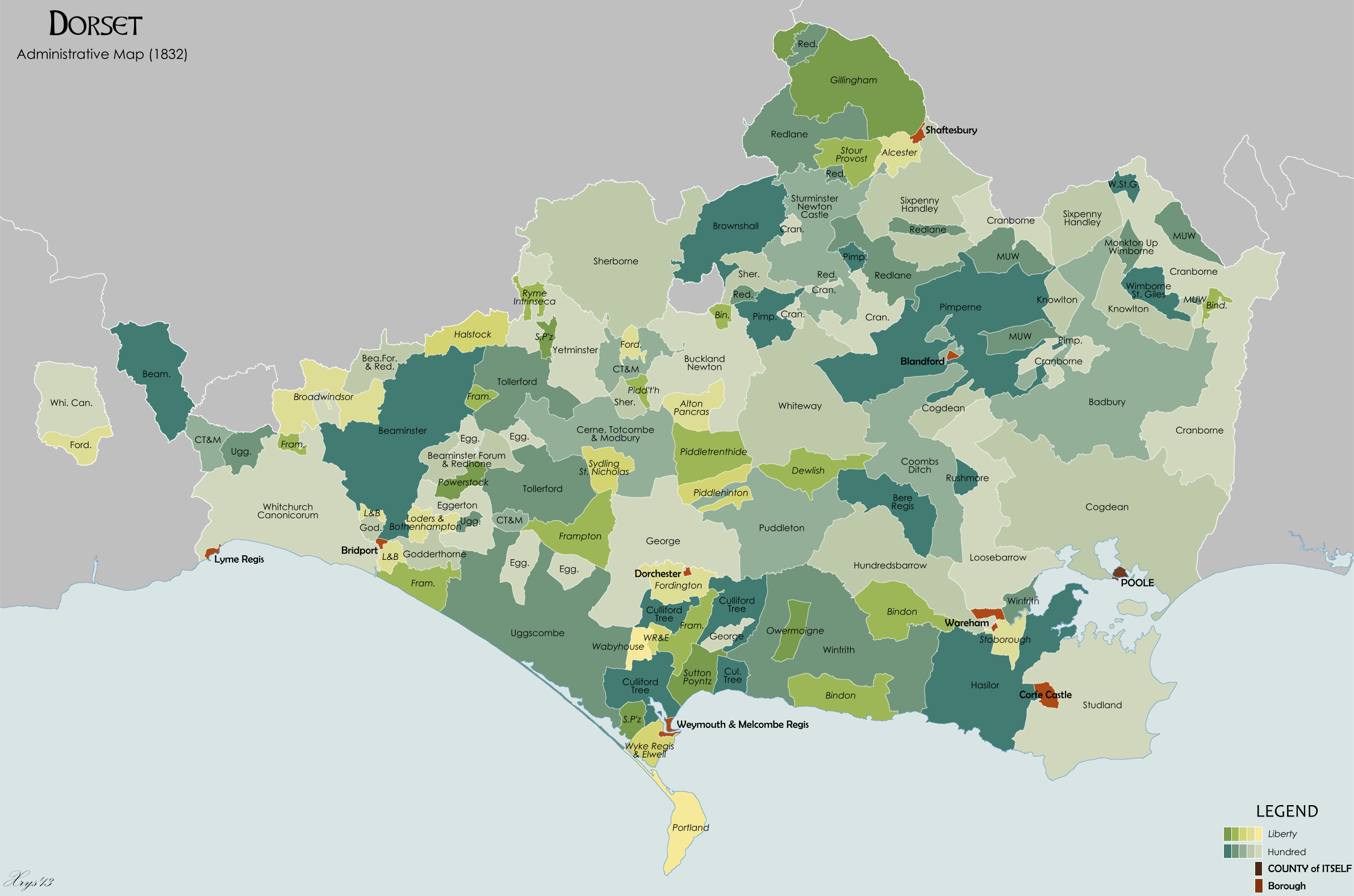|
Clubmen Of Dorset And Wiltshire
The Clubmen of Dorset and Wiltshire were a paramilitary unit formed in late 1644 or early 1645, during the English Civil War, in the Dorset and Wiltshire region. As with other groups of Clubmen, they were formed for the purpose of self-protection from the deprivations of both the Parliamentarians and the Royalists, with their goal being the cessation of all hostilities. Background By late summer of 1644, Royalist commanders were facing significant difficulties supplying and quartering their troops in the face of indifference and hostility from the local population. This local response was due to the arrival of Prince Rupert's troops from the north; while the local population had previously reluctant supported local garrisons, they were hostile to these strangers. This response was then exacerbated by the defeats suffered by the Royalists in the summer and the autumn of that year, as it triggered a further withdrawal of support from the local population who sought to bring about ... [...More Info...] [...Related Items...] OR: [Wikipedia] [Google] [Baidu] |
Clubmen Declaration
Clubmen were bands of local defence vigilantes during the English Civil War (1642–1651) who tried to protect their localities against the excesses of the armies of both sides in the war. They sought to join together to prevent their wives and daughters being raped by soldiers of both sides, themselves being forcibly conscripted to fight by one side or the other, their crops and property being damaged or seized by the armies and their lives threatened or intimidated by soldiers, battle followers, looters, deserters or refugees. As their name suggests, they were mostly armed with cudgels, flails, scythes and sickles fastened to long poles. They were otherwise unarmed. Initially Clubmen gatherings came together spontaneously in response to the actions of soldiers in their localities but as the war went on Clubmen in some areas were organised by the local gentry and churchmen and were a force which both sides in the war had to take into account when planning a campaign and garrisoni ... [...More Info...] [...Related Items...] OR: [Wikipedia] [Google] [Baidu] |
Militant Neutralism
The English word ''militant'' is both an adjective and a noun, and it is generally used to mean vigorously active, combative and/or aggressive, especially in support of a cause, as in "militant reformers". It comes from the 15th century Latin "''warrior''" meaning "to serve as a soldier". The related modern concept of the militia as a defensive organization against invaders grew out of the Anglo-Saxon fyrd. In times of crisis, the militiaman left his civilian duties and became a soldier until the emergency was over, when he returned to his civilian occupation. The current meaning of ''militant'' does not usually refer to a registered soldier: it can be anyone who subscribes to the idea of using vigorous, sometimes extreme, activity to achieve an objective, usually political. A "militant oliticalactivist" would be expected to be more confrontational and aggressive than an activist not described as militant. Militance may or may not include physical violence, armed combat, terro ... [...More Info...] [...Related Items...] OR: [Wikipedia] [Google] [Baidu] |
History Of Dorset
Dorset is a rural county in south west England. Its archaeology documents much of the history of southern England. Pre-Roman The first known settlement of Dorset was by Mesolithic hunters, who returned to Britain at a time when it was still attached to Europe by a land-bridge, around 12,500 BC. The population was very small, maybe only a few thousand across the whole of Britain, and concentrated along the coast: in Dorset, such places as the Isle of Purbeck, Weymouth, Chesil Beach and Hengistbury Head, and along the Stour valley. These populations used stone tools and fire to clear some of the native oak forest for herding prey. Genetic experiments carried out on a Mesolithic skeleton from Cheddar Gorge (in the neighbouring county of Somerset) have shown that a significant part of the contemporary population of Dorset is descended from these original inhabitants of the British Isles. This suggests that when a wave of immigrant farmers arrived from the continent in the Neolit ... [...More Info...] [...Related Items...] OR: [Wikipedia] [Google] [Baidu] |
Oliver Cromwell
Oliver Cromwell (25 April 15993 September 1658) was an English politician and military officer who is widely regarded as one of the most important statesmen in English history. He came to prominence during the 1639 to 1651 Wars of the Three Kingdoms, first as a senior commander in the Parliamentarian army and then as a politician. A leading advocate of the execution of Charles I in January 1649, which led to the establishment of the Republican Commonwealth of England, Scotland and Ireland, he ruled as Lord Protector from December 1653 until his death in September 1658. Cromwell nevertheless remains a deeply controversial figure in both Britain and Ireland, due to his use of the military to first acquire, then retain political power, and the brutality of his 1649 Irish campaign. Educated at Sidney Sussex College, Cambridge, Cromwell was elected MP for Huntingdon in 1628, but the first 40 years of his life were undistinguished and at one point he contemplated emigration to ... [...More Info...] [...Related Items...] OR: [Wikipedia] [Google] [Baidu] |


